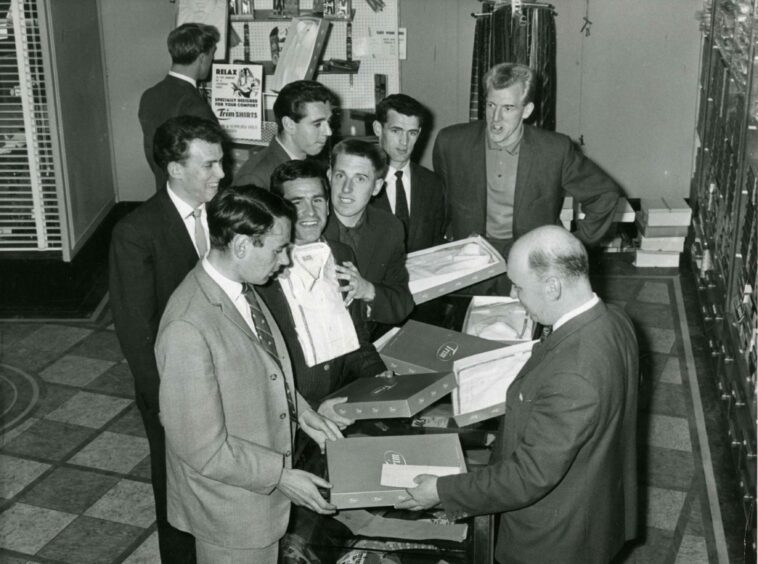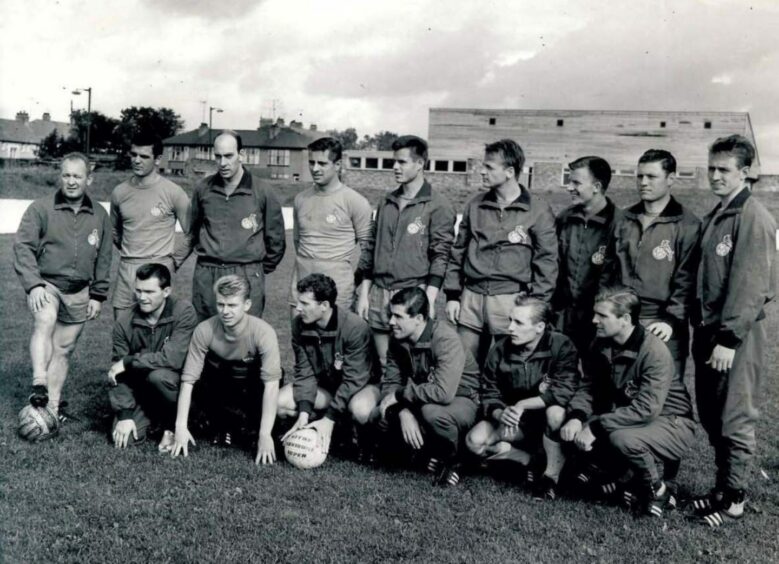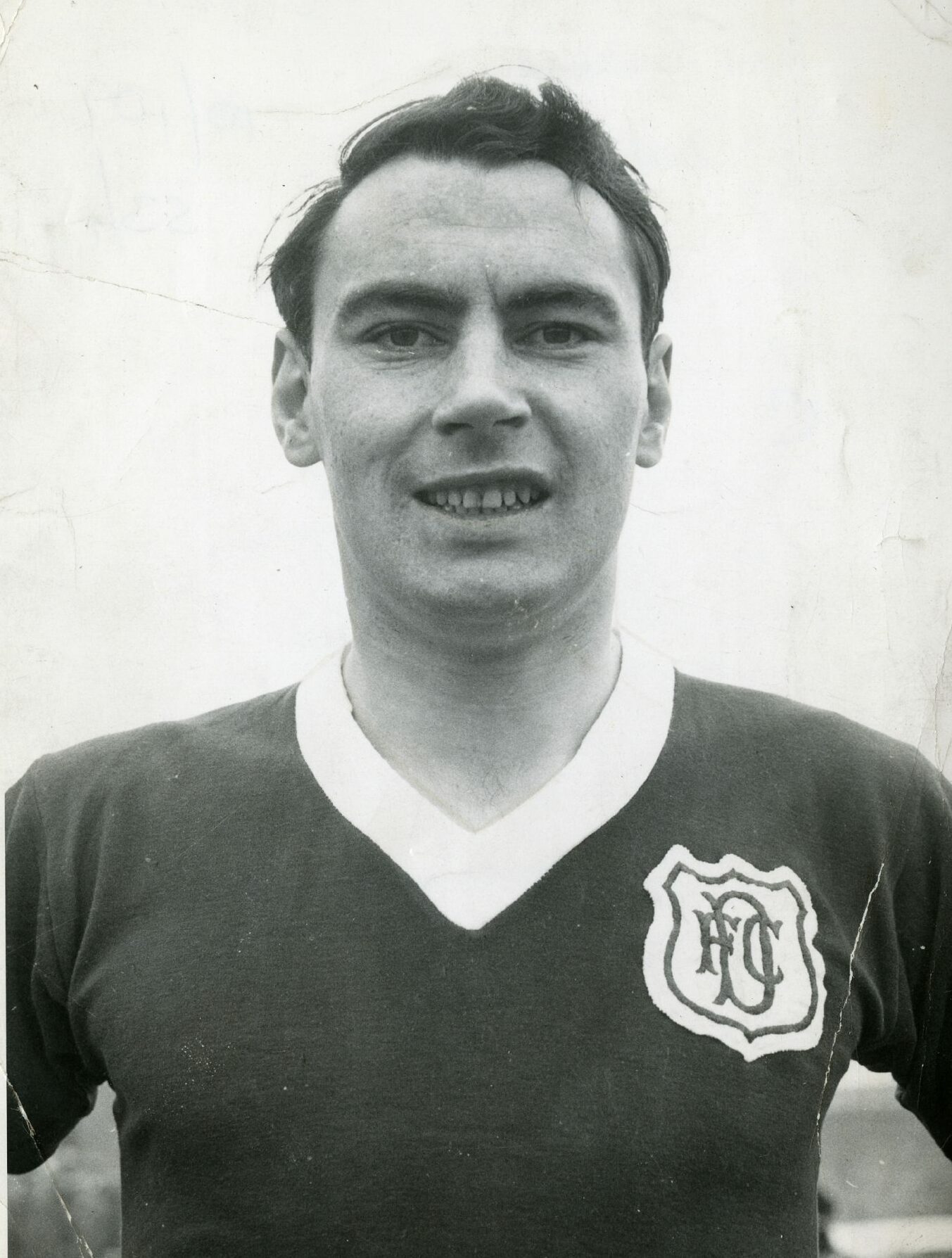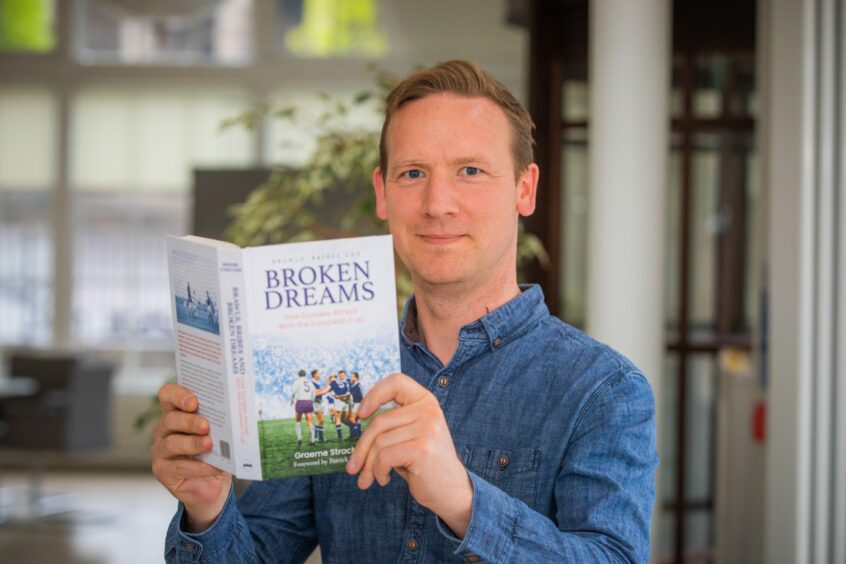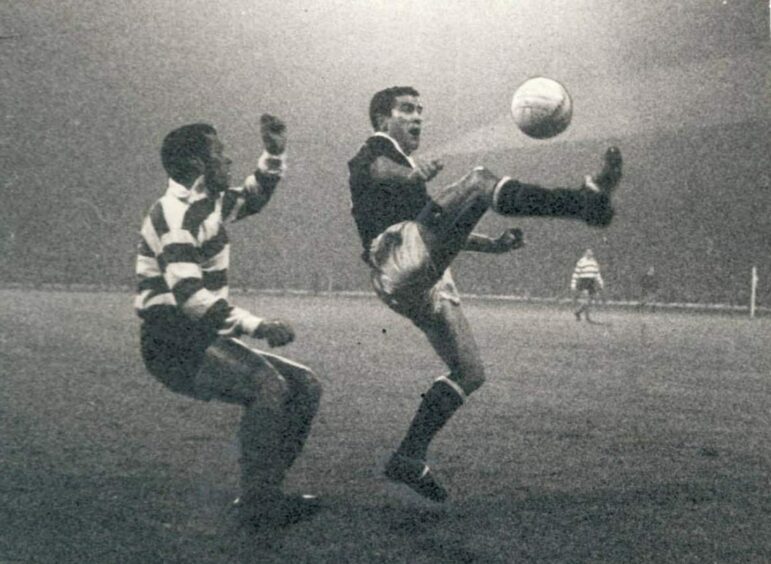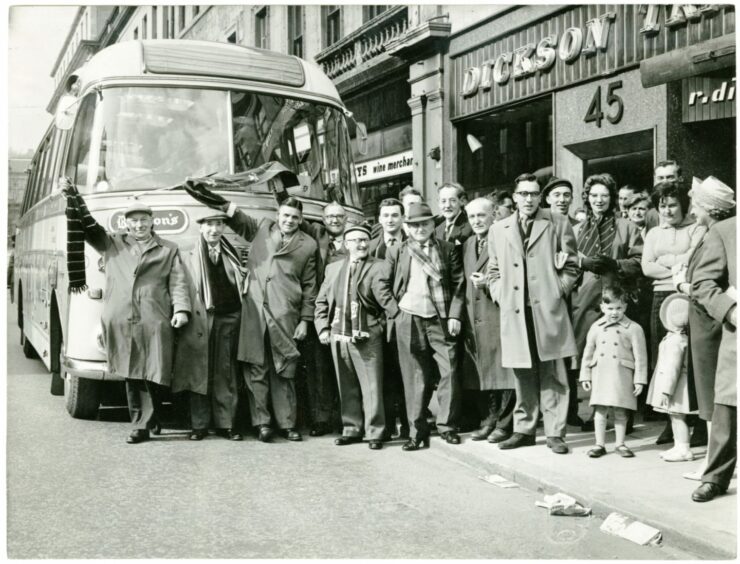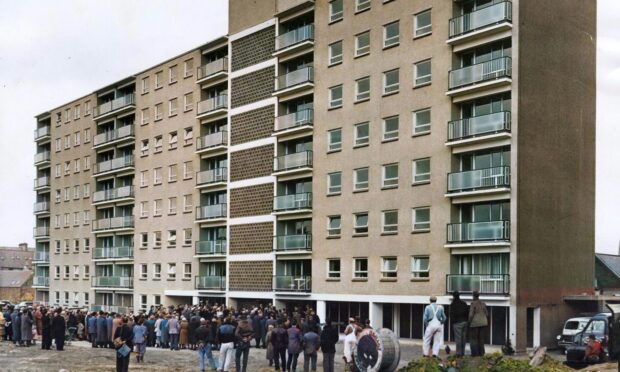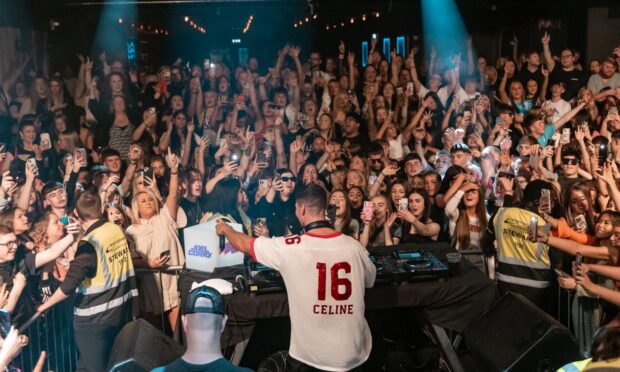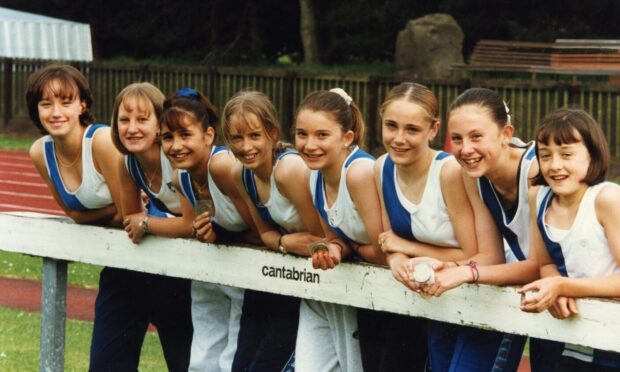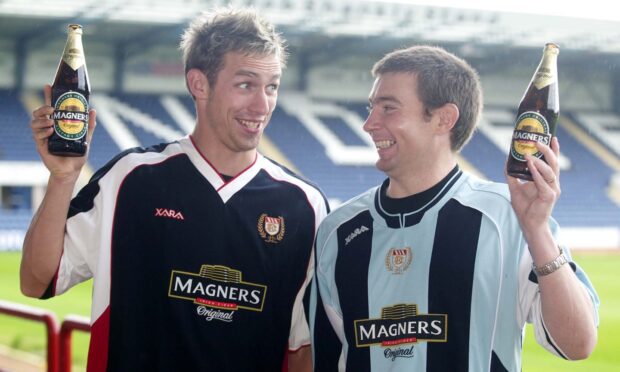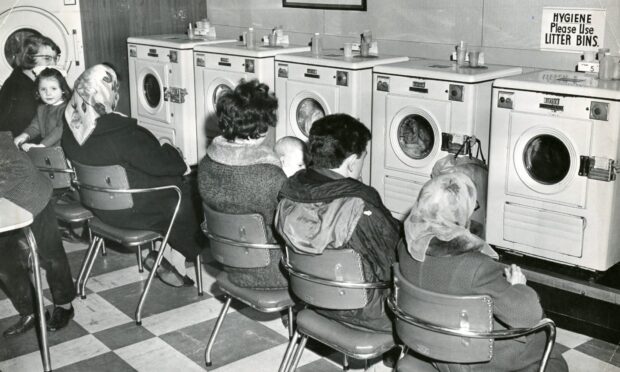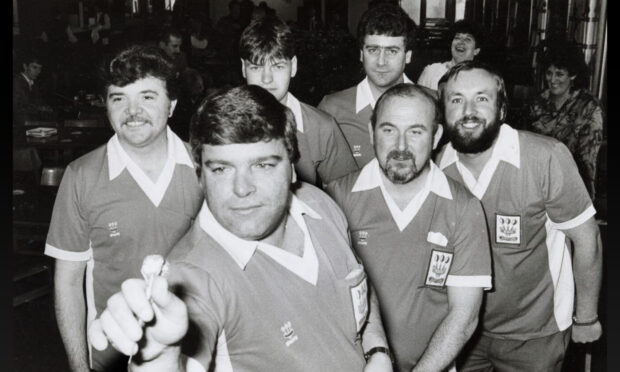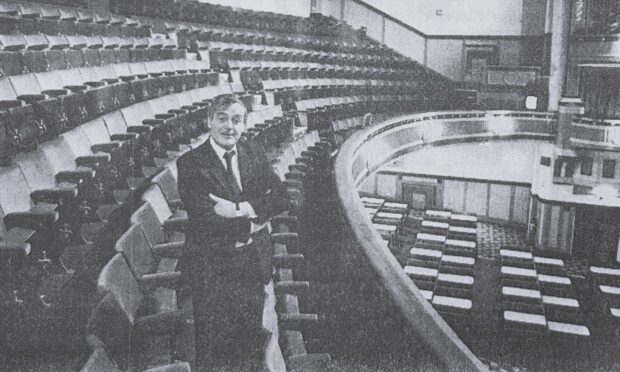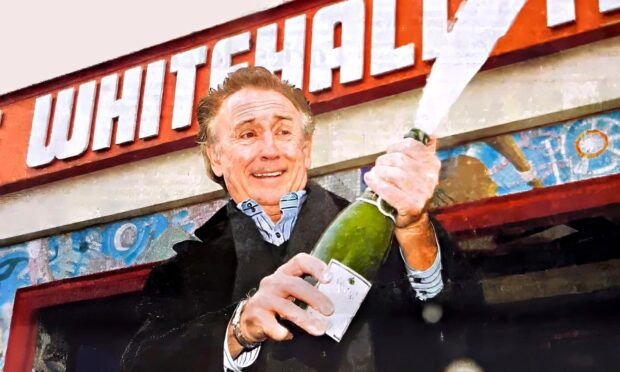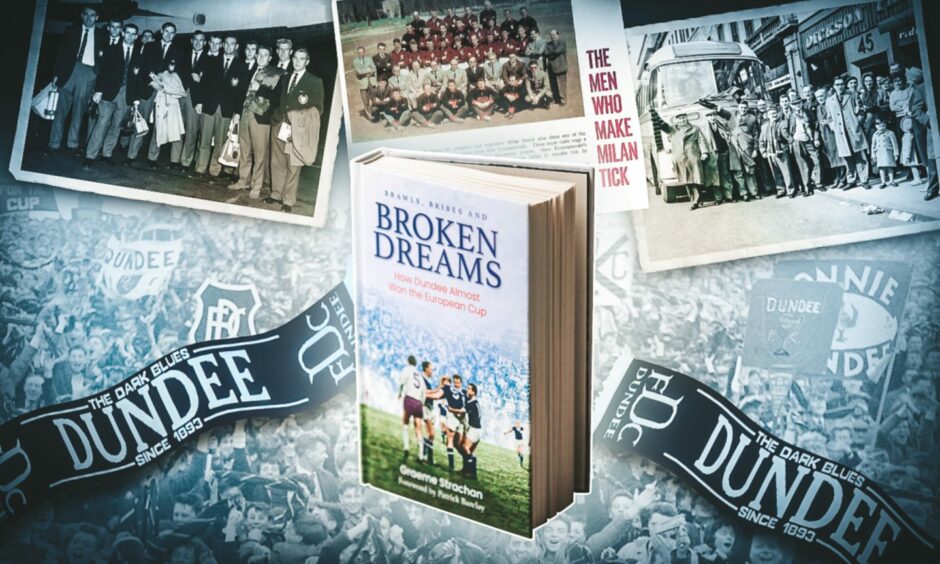
It’s a rip-roaring story to rival anything from Roy of the Rovers; a blow-by-blow account of how Dundee FC dealt with the seamy, the schemey and the dreamy in pursuit of European glory 60 years ago.
Some Dens Park fans might have imagined they had gone as far as they could possibly go after Bob Shankly’s side won the Scottish championship in 1961-62.
And yet they and such influential players as Alan Gilzean, Ian Ure and Gordon Smith were soon involved in an action-packed adventure across Europe, via the United States, where they had travelled for a pre-season tour.
While in the US, the team met Cassius Clay – before he became Muhammad Ali – and were as impressed with the legendary boxer as everybody else.
Soon enough, though, as a new book relates, they were chasing the greatest prize of their lives and achieving some of the most astonishing results in Scottish football history.
Even at this stage, it seems almost beyond belief how that Shankly-inspired collective tore up the form book and became feared across the continent.
At the outset, Dundee were drawn against a Cologne side who were among the favourites to win the European Cup and boasted no fewer than 10 West German internationalists including 1954 World Cup winner Hans Schäfer.
It looked very one-sided on paper. And it was, though not as anticipated.
In advance, the Scottish players warmed up on the pitch for their Euro debut in ripped tracksuit bottoms.
Their West Germans rivals, in contrast, were resplendent in pristine new kit and looked every inch a superstar ensemble.
However, even if the Dark Blues were sartorially challenged, they were very much up for the fight, and demolished the West Germans with an 8-1 first leg blitzkrieg at Dens Park that left the German Embassy reeling.
It was said that window panes on Provost Road and Sandeman Street shook and shuddered from a level of decibels which had never been heard before.
Legendary commentator Kenneth Wolstenholme told BBC listeners that he rated the Dark Blues as one of the best sides he had ever seen and predicted they could go all the way in the competition.
He wasn’t far off the mark, but in the same week that they shared the same bill as boxing legends Sonny Liston and Sugar Ray Robinson, the British Army were forced to rescue the Dundee side (who were beaten 4-0) from a mass riot in the return match, which became known as The Battle of Cologne.
The new book tells the compelling story of Dundee’s incredible run which steered them tantalisingly close to the European Cup Final at Wembley.
And it illustrates how Bob Shankly’s team came close to achieving the immortality enjoyed by Jock Stein’s Celtic and Sir Matt Busby’s Manchester United in the second half of the Swinging Sixties.
Brawls, Bribes and Broken Dreams: How Dundee Almost Won the European Cup by my colleague, Graeme Strachan, lifts the lid on a journey that reads like it came from the fevered pen of a Hollywood scriptwriter.
Award-winning journalist and Dark Blues fan Patrick Barclay was among those who stood on the Dens Park terracing when Dundee chased European glory in 1962-63 and was delighted to write the foreword for the book.
He said: “This was a European journey like no other. There was an abundance of goals, violence on and off the field, bumper Dens Park attendances, allegations of bribery – all to a background of the worst winter in living memory.”
The book features myriad interview transcripts, scouting information and visceral match reports from the vaults, alongside rare images from the time, including many which have never before appeared in print.
It includes insightful interviews from many of the players and management who were part of that remarkable journey at a time when journalists were part of the team’s inner circle.
And it’s not just from a Scottish perspective, because Alf Ramsey, Walter Winterbottom and Jimmy Greaves were also on hand to give their analysis of Dundee’s chances of achieving the impossible.
Author ‘utterly gripped’ during research
No wonder that once Strachan began delving into his subject, he was enthralled by so many tales of the unexpected which kept cropping up.
As he told me: “I stumbled across a few cuttings on the European Cup campaign during my research and I was utterly gripped.
“There have been books written about Dundee’s 1962 title win, but the European Cup campaign which followed was even more dramatic.
“In fact, many of the goings-on wouldn’t have looked out of place in a Hollywood film and every game seemed to deliver even more twists and turns than the previous one!
“When the competition started, this was arguably one of the strongest array of teams which had ever been assembled in a European Cup campaign.
“And yet, but for some ill fortune and questionable refereeing, Shankly’s team might have become the first British team to win the famous trophy.”
Strachan added: “There were so many moments which surprised me during my research – including how Shankly refused to study his European opponents and relied on ‘tips’ from helpful locals.
“A former golf professional who ran a B&B in Estoril, for instance, became the team’s spy in the camp and helped them swot up on Sporting Lisbon!
“But even domestic matters intrigued me – because, during that Big Freeze of 1963 (when there were few games for three months) there was a vote for summer football which would have been introduced a few months later and would have changed the face of the domestic game as we know it.”
The first leg in Lisbon was described in The Courier by Tommy Gallacher as “one of the fastest, most gruelling but sportiest European Cup ties ever seen”.
“Unfortunately for Dundee, they conceded a last-minute goal in a melee which saw the ball cleared from just behind the line.
“It was credited to inside-right Geo though the Dundee players were adamant it hadn’t crossed the line and the Dark Blues were unlucky to go back to Scotland with a 1-0 deficit.”
But it didn’t matter. A week later, a full-strength Dundee were roared on by a 32,000-strong crowd to a 4-1 win that sent them through 4-2 on aggregate.
This was heady stuff even at a time when Scottish football was strong. And there was was fresh reason to celebrate when they were drawn against Anderlecht – the conquerors of Real Madrid – in the quarter-finals.
From Bayview to Heysel
Strachan’s book reveals how the Pools Panel was created during this period due to the lack of football as the sport was rocked by a record number of postponements with the ice and snow exerting a vice-like grip.
The thaw finally came in March and Dundee’s delayed tie against Anderlecht went ahead after East Fife helped out by providing much-needed match practice at Bayview prior to Dundee’s trip to Belgium.
More than 60,000 fans congregated at the Heysel Stadium in Brussels to see Dundee provide a lesson in counter-attacking football as they ran out 4-1 winners over the conquerors of Real Madrid.
There’s so much to enjoy and cherish in Strachan’s work that it wouldn’t do to spoil the controversy which marred the climactic stages.
Yes, they lost heavily, 5-1, and despite gaining some revenge in the second leg with a 1-0 success in Dundee, had to bow out of the tournament.
But they had been as honest as they had been hard to beat. Was the same true of Milan?
Strachan said: “Why were the Italian photographers gathered behind Bert Slater’s goal and why were Milan the beneficiaries of what appeared to be thoroughly questionable refereeing?
“And what might have happened if that game in the San Siro had been played on a level playing field?”
We will never know the answers to these questions but what is undeniable is that Strachan has brought the same vibrant energy, ebullience and effervescence to recounting his saga as Shankly’s troops did to their efforts on the pitch.
There may be little for Dundee aficionados to cheer about at the moment, but this book offers a merciful antidote to their relegation woes and is a pick-me-up for anybody who favours underdogs and so-called “unfashionable” clubs.
Whatever team you support, it’s a hell of a thrill ride!
It is released on May 16 and is available now on pre-sale from Amazon, WH Smith, Waterstones and other online outlets.
More like this:
Never-before-seen photographs document Dundee FC’s 1962 league triumph
